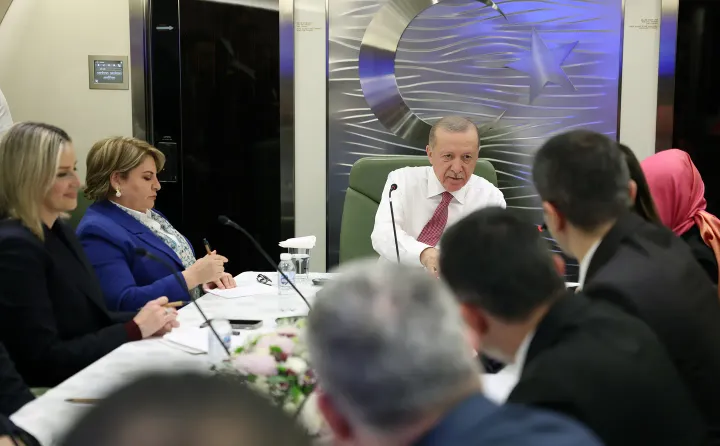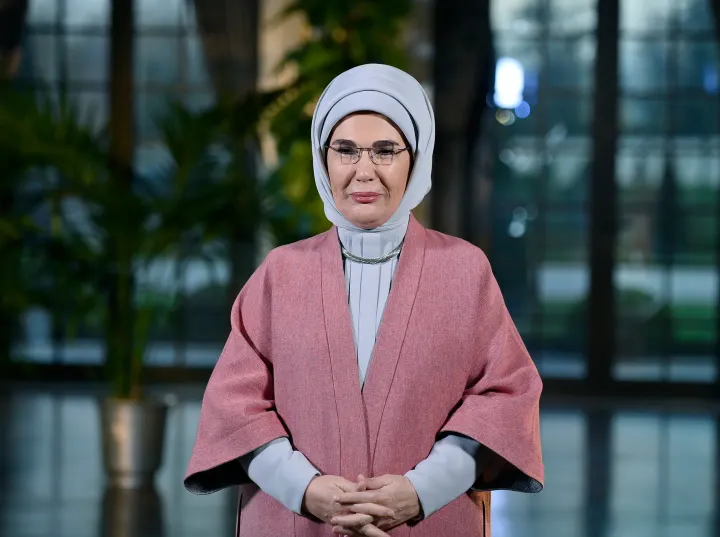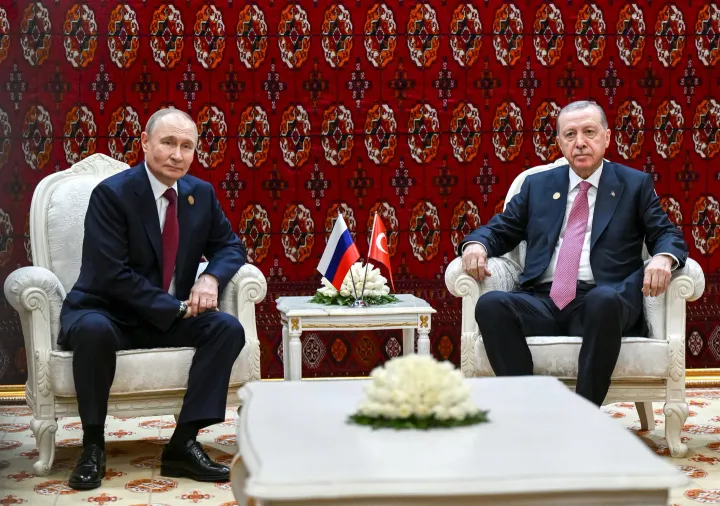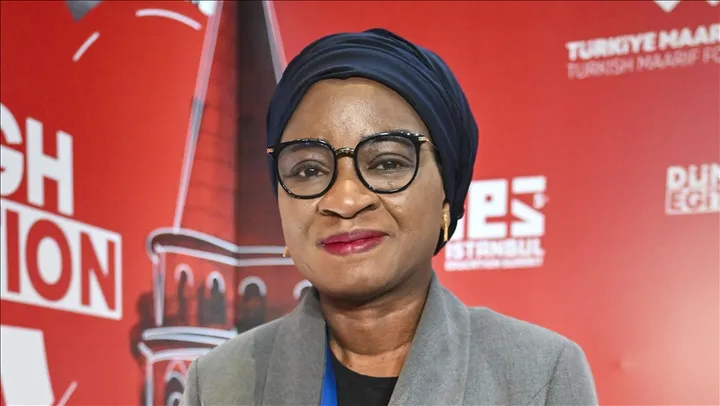The first round of the Turkish presidential race ended without a clear winner, pushing the contest between People’s Alliance’s candidate Recep Tayyip Erdogan and Nation Alliance’s Kemal Kilicdaroglu to the runoff on May 28.
Many analysts and pollsters, however, believe that incumbent President Erdogan has the upper hand in the second round after he finished the May 14 presidential race nearly five percent ahead of the opposition candidate.
This political reality appears to have pushed Kilicdaroglu to seek a controversial alliance with Umit Ozdag, the far-right leader of the Zafer Party, who advocate sending refugees from Syria and other countries back to their own countries.
Ozdag has earlier criticised Kilicdaroglu’s Republican People's Party (CHP) for its implicit links to the Peoples’ Democratic Party (HDP), which has ties to the PKK, a terrorist organisation. Before the election, the HDP had declared to support Kilicdaroglu in the presidential race against Erdogan.
“Kilicdaroglu can only win with the support of the HDP,” Ozdag said during an interview last year, adding that the CHP leader’s possible victory would also empower the HDP to win the 2024 local elections in southeastern and eastern regions “intensifying interaction” between the PKK and the HDP.
In the same interview, he claimed that the CHP’s soft policy toward the HDP, allowing the party to keep municipalities it would supposedly win after the 2024 local elections, would “create civil war conditions” in Türkiye.
The PKK’s violent campaign against the Turkish state and its people has killed tens of thousands of civilians and security personnel during its decades-long terror campaign. The HDP receives most of its votes from Türkiye’s predominantly Kurdish-populated southeastern and eastern regions.
Chain of contradictions
Despite Ozdag’s aggressive anti-CHP stances before the May 14 polls, he decided to back Kilicdaroglu on Wednesday all of a sudden, in a move that’s contradictory in many ways.
The HDP also announced that it would continue to back Kilicdaroglu despite Ozdag’s support for him. Earlier, the party had criticised Ozdag’s “heavy racist, fascist mentality” for his “humiliating approach” to HDP supporters.
Before the HDP announced its continued support to Kilicdaroglu, Ozdag said that he did not “care” about HDP votes when asked about the possibility that the party might boycott the election due to Ozdag’s alliance with the CHP chairman.
During a TV appearance on Thursday night, President Recep Tayyip Erdogan commented on this development, saying that Kilicdaroglu’s alliance with the ultra-nationalist Ozdag might cost him some crucial Kurdish votes.
“Don't be surprised if HDP withdraws its support,” Erdogan said. But he also pointed out that even though the HDP supports Kilicdaroglu, Türkiye’s Kurds might vote differently due to Ozdag’s political character. Erdogan said his assessment was based on “the feedback” he got from Kurdish-dominated regions.
“There is no such thing as those at the top who think the same as those at the bottom,” Erdogan added, referring to the possibility that the HDP leadership and its political base can act differently on May 28.
In the same interview, Erdogan also challenged Ozdag’s assertion that Ogan’s 5.2 percent “will not follow the same path” as Ogan directs. “He (Ozdag) does not say the same for himself. Will his party’s 2.2 percent go his way?” Erdogan asked, referring to what Ozdag’s Zafer Party received in the May 14 parliamentary election.
Based on the May 14 election results, Erdogan needs less than one percent of votes to win the election, and Kilicdaroglu needs to secure more than five percent.
Nationalist and Kurdish votes
The May 14 elections demonstrated that Turkish votes were divided into four main political camps: centre-right, centre-left, nationalists and Kurdish votes.
The Erdogan-led centre-right AK Party, backed by the Nationalist Movement Party (MHP), the conservative Yeniden Refah Party (YRP), the Milli Gorus movement, which Erdogan was part of in the past, Buyuk Birlik Party (BBP), a conservative party with similar stances to the YRP, and Huda-Par, the political wing of a conservative Kurdish movement, received nearly 40 percent of the votes in the parliamentary polls.
Kilicdaroglu’s CHP received 25 percent backed by four conservative parties – Gelecek Party, Deva Party, Saadet Party and Democrat Party – whose support appeared not to make much contribution to the centre-left party.
Analysts believe that this equation between Erdogan-led centre-right and Kilicdaroglu-led centre-left can not be changed easily. But the two political blocks, nationalists and Kurdish votes, which are divided among many different political factions, might decide who can win the second round on Sunday, according to experts.
While nationalists are currently divided into four different factions, the Nationalist Movement Party (MHP), Iyi Party, Zafer Party and Ogan’s supporters, the Kurdish votes are split between the AK Party, HDP and Huda-Par.
In total, nationalist factions received 25 percent, with the MHP and Iyi Party getting 10 percent in the parliamentary election and Ogan claiming five percent in the presidential race.
In terms of Kurdish votes, the HDP, which backs Kilicdaroglu, received nearly 9 percent nationally, showing a declining pattern compared to the previous election.
On the other hand, the AK Party allied with Huda-par made a strong showing in Türkiye’s heavily Kurdish-populated eastern and southeastern regions.
Ozdag’s extreme anti-refugee stance
Ozdag, Kilicdaroglu's new ally, has long been known for his xenophobic stance, which contradicts what the CHP head describes as a ‘defence of democratic values and liberties’ during the election campaign.
Ozdag even launched his party’s election campaign with an anti-refugee slogan, ‘Zafer Tourism’, picturing himself with buses, which meant to drive millions of refugees to their home countries from Türkiye.
“Our ticket sales have started for Zafer Turizm's one-way Damascus trip. Write the name you want to send in the bank transfer description, let's make the reservation,” he sarcastically wrote on Twitter in January, deliberately spreading waves of fear among refugees.
After his alliance with Ozdag, Kilicdaroglu is also spreading a similar message, as many banners have appeared across billboards in Istanbul with the slogan, “Syrians will go”.
Both Kilicdaroglu and Ozdag wrongly claimed that Türkiye hosts 10 million refugees while the number of asylum-seekers is around four million, according to the UN Refugee Agency (UNHCR).
In a television broadcast on Friday, President Erdogan criticised Kilicdaroglu’s ‘manipulation’ of the wrong number of refugees in Türkiye.
“The population of Syria is around 17 million. How many times has my minister made these statements? He made a statement that 'There are 4 million Syrians', but Kilicdaroglu is a liar,” said Erdogan.
“Currently, the number of Syrian refugees in Türkiyee is 3,888,000. According to these, there are 10 million, 10 million more to come. Why are you such a liar? He’s all based on lies.”
























